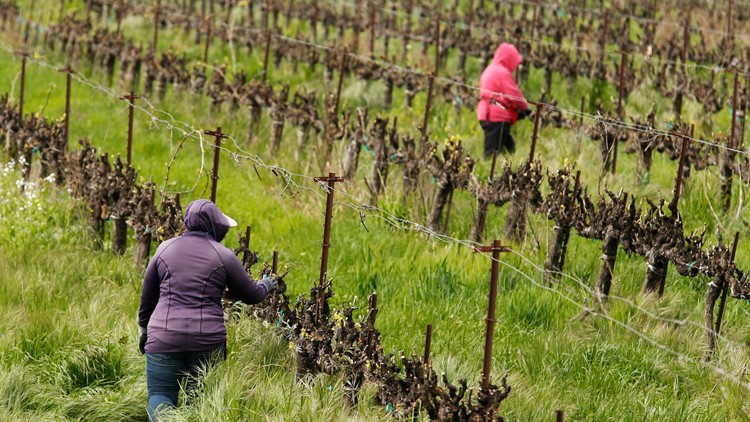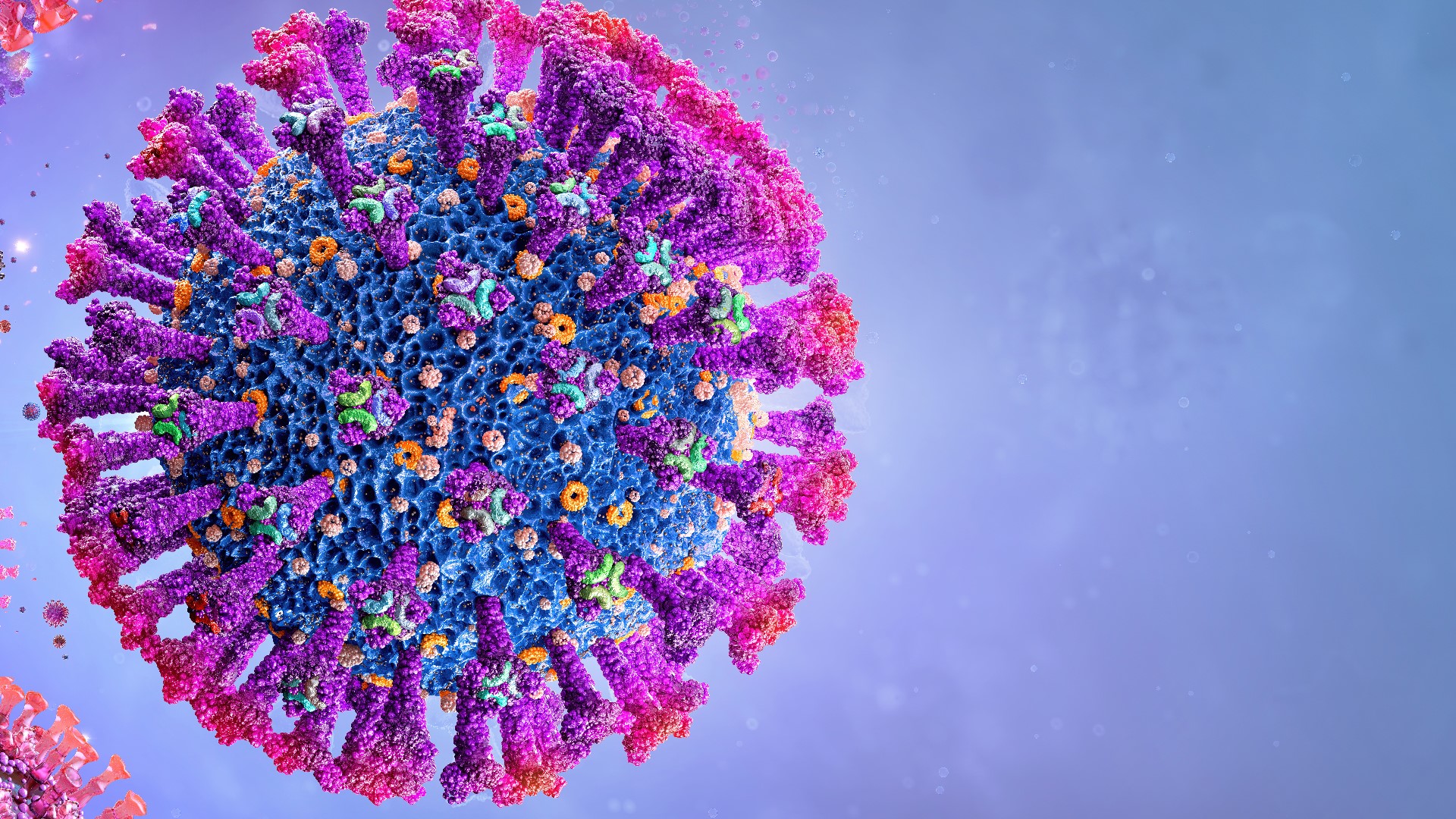CALIFORNIA, USA — UC Davis is launching a new effort to change the course of coronavirus impacts on California farmworkers.
It’s a $3 million project focused on training and safety information for farmworkers and community groups. The Western Center for Agricultural Health and Safety (WCAHS) at UC Davis will also be working with farmers and others in the agriculture industry to help them navigate a COVID-19 safe workplace before harvest starts to ramp up across the state.
For perspective, more than 90% of California’s farmworkers are Latino. According to state data from Jan. 27, Latinos made up 55% of coronavirus cases, 46% of coronavirus deaths and 39% of the state’s population.
Each number is partly why Teresa Andrews, education specialist with WCAHS, believes that a lack of meaningful outreach has made farmworkers the “weakest link in the community.” Her background as an educator, the tragic numbers, and her Mexican heritage are among the reasons why she pushed herself to the frontlines of the outreach effort.
“It hurts me because I have been the weakest link in a situation and I don’t like to feel there. So, that’s why what I can do is empower others with knowledge and to be the best instrument I can to bring the information they need,” she said.
Despite a vaccine rollout in progress and farmworkers part of the prioritized groups, some say that safety outreach will still be critical with so many unknowns surrounding the vaccine.
“It is not yet known whether or not someone who has been vaccinated can still spread the virus and infect others,” said Heather Riden, program director at the WCAHS. “It is also not known yet for how long the vaccine protects against the virus. For these reasons, wearing a mask, physical distancing, and good hand hygiene should continue until we know more.”
Mask wearing, physical distancing, and good hygiene are not new concepts. However, for this project, the UC Davis program has a focus on explaining the reasons behind the practices. That translates to getting involved with community organizations and even the workers themselves to explain how soap destroys the lipid cover of the coronavirus and how masking and distancing can help reduce spread.
“We need to explain the why in order for people to adopt these behavior changes and then we need to go into more detail,” Riden said.
Having done hundreds of classes since the start of the pandemic, Andrews said these details about the background of the virus and the rationale behind its name is valued among farmworkers.
It's information delivered with respect to the community, even if that sometimes means the WCAHS takes a secondary role to other community organizations. Riden said a core part of the project is getting these trusted organizations the information and expertise they need to keep making a difference.
“Without them, I think the tragic numbers… would be so much worse,” Riden said regarding the impact on Latinos and farmworkers. “It is the community organizations that are really carrying all of us right now, and so I hope that this project can help shine a light on them and help amplify their voice and their work.”
Despite simple principles like washing your hands, wearing a mask and social distancing, the workplace is a big variable. Nonetheless, Riden said steps toward a more COVID-19 safe workplace are attainable. It would include screenings to keep sick people from coming to work, rigorous cleaning procedures, and possibly staggering when people arrive to work and leave.
She said that, if farmworkers are exposed to the virus, they might not seek medical care or isolation, which would increase community spread. Riden said those decisions can come about due to low wages and limited access to healthcare and other social support systems.
Riden believes the workplace is a good place to instill those safety practices because, regardless of the pandemic, the farmworkers never stopped working. It's part of the reason that education for the farmworkers starts now before harvest ramps up.
“We have to be proactive. We cannot wait until everyone is out there,” Andrews said. “The information has to happen before so the employer has the worksite ready and workers ready to implement the precautions…”
Andrews said that if the education waits until the harvest season gets into full gear, some workers might not have time to engage in the material. Riden added that the number of people in the fields will only increase closer to spring.
“Agriculture never stops in California, and it’s especially important as we know spring is coming, when the workforce will increase, that we build the safe practices, we reinforce those safe messages and have everybody ready to be in closer contact because there will be more people in the fields come the spring than there are now,” Riden said.





















